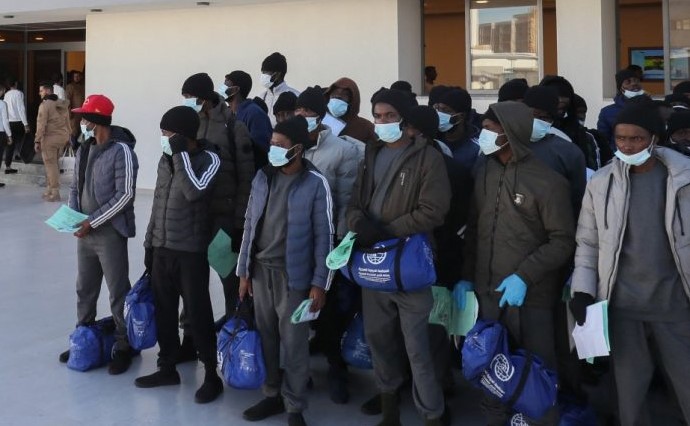The British government has recently intensified its immigration enforcement efforts, highlighted by a record-breaking deportation flight that forcibly removed 44 Nigerians and Ghanaians from the UK on October 18. This significant action has been confirmed by the Home Office as part of a broader crackdown, with over 3,600 deportations occurring since the Labour government took power in July. Such a large-scale deportation is particularly notable, as flights to Nigeria and Ghana have been relatively rare in recent years, with only four recorded since 2020, and previous flights carrying significantly fewer deportees—ranging from six to 21 individuals.
The recent deportation coincides with evolving UK immigration policies, particularly concerning asylum seekers. The government is currently finalizing a treaty to hand over the Chagos Islands to Mauritius. As part of this agreement, any asylum seekers arriving at Diego Garcia, a British-administered island, before the treaty is finalized will be relocated to Saint Helena, another remote British territory in the Atlantic Ocean. This development raises concerns, especially for around 60 Tamils who have been stranded on Diego Garcia since 2021 and are pursuing legal action regarding their detention.
While the number of asylum seekers arriving at Diego Garcia has been in the hundreds, this pales in comparison to the tens of thousands who have crossed the English Channel in small boats from northern France in recent years. On the same day as the deportation flight, 647 individuals made the perilous crossing, pushing the total number of crossings this year beyond 28,000.
Before their deportation, several Nigerian men were held at the Brook House immigration removal center near Gatwick. In interviews, they expressed deep distress over their circumstances. One individual, who had lived in the UK for 15 years while seeking asylum, lamented, “I have no criminal record, but the Home Office has refused my claim.” Another man, a victim of trafficking who displayed torture scars, also shared his frustration about the denial of his asylum application. These stories highlight the human impact of the government’s immigration policies and the experiences of those who feel they have been unjustly treated.

Fizza Qureshi, the chief executive of the Migrants’ Rights Network, voiced strong condemnation of the deportations, describing the process as cruel and highlighting issues related to the speed and secrecy of the operations. She noted the lack of access to legal support for those facing deportation, emphasizing that many of these individuals had done nothing wrong other than seek help. One detainee encapsulated this sentiment, stating, “The Home Office is playing politics with people’s lives. We have not done anything wrong other than cry for help.”
The Home Office has defended its actions, asserting that the government is committed to enforcing immigration rules and ensuring that individuals without the legal right to remain in the UK are returned. This latest surge in deportations reflects a broader strategy to address immigration enforcement, which has been a contentious issue in UK politics.
As the UK government continues to navigate the complexities of its immigration policy, particularly in relation to asylum seekers, the experiences of those affected by these deportations reveal the human consequences of political decisions. The situation surrounding the Chagos Islands and the treatment of asylum seekers arriving in territories like Diego Garcia further complicate the narrative, raising ethical questions about how the government handles vulnerable populations.
Overall, the recent deportation of 44 Nigerians and Ghanaians serves as a stark reminder of the ongoing challenges faced by asylum seekers in the UK. With changing policies and increased enforcement, many individuals find themselves caught in a system that often prioritizes political objectives over humanitarian considerations. The stories of those impacted underscore the urgent need for a more compassionate approach to immigration, one that recognizes the dignity and rights of individuals seeking refuge and safety. As this situation continues to develop, the voices of those affected will be crucial in shaping the conversation around immigration policy in the UK.
SOURCES
- https://www.premiumtimesng.com/foreign/world-foreign/746946-uk-govt-deports-dozens-of-nigerians-ghanaians-in-single-flight.html
- https://www.vanguardngr.com/2024/10/asylum-uk-deports-44-nigerians-ghanaians-in-single-flight/




